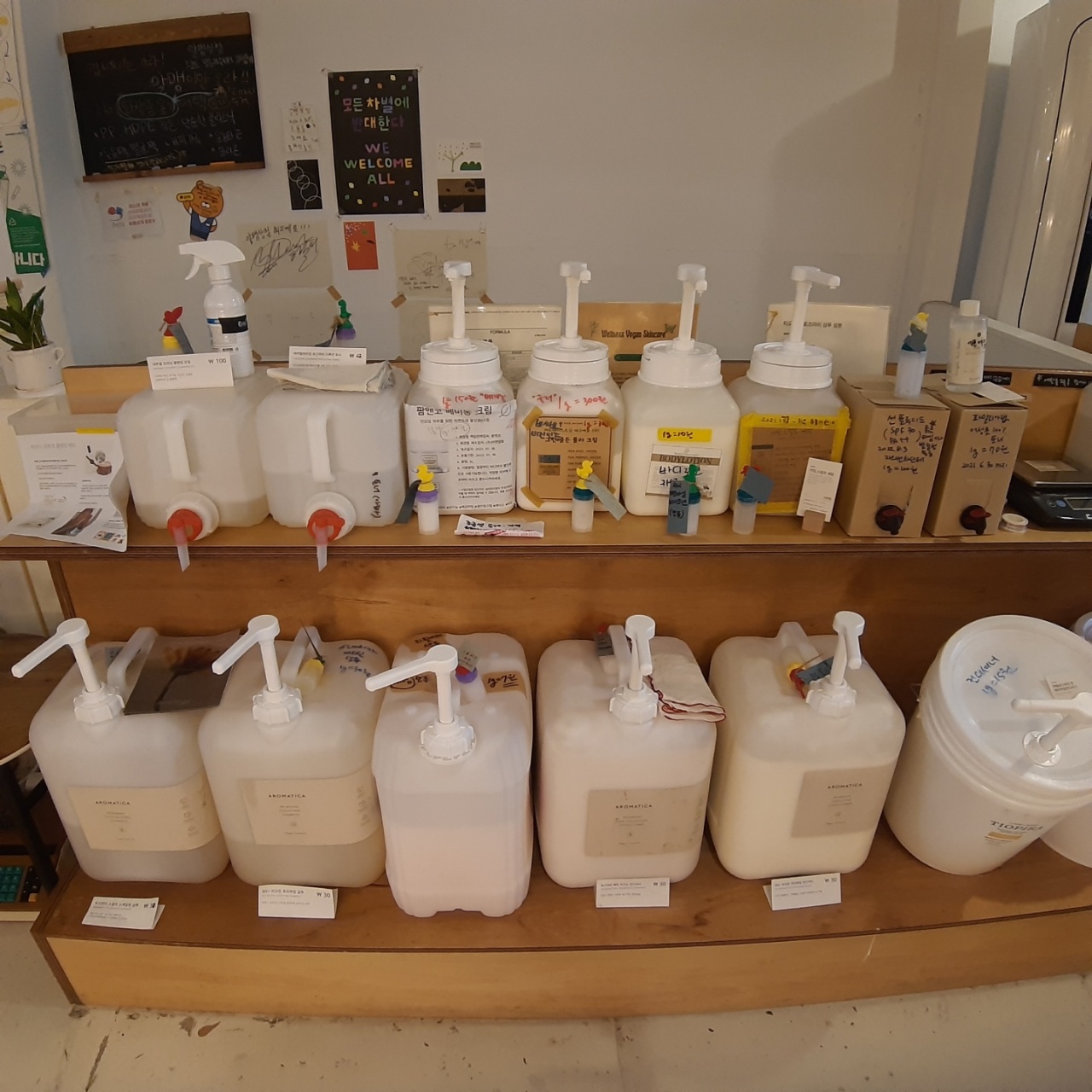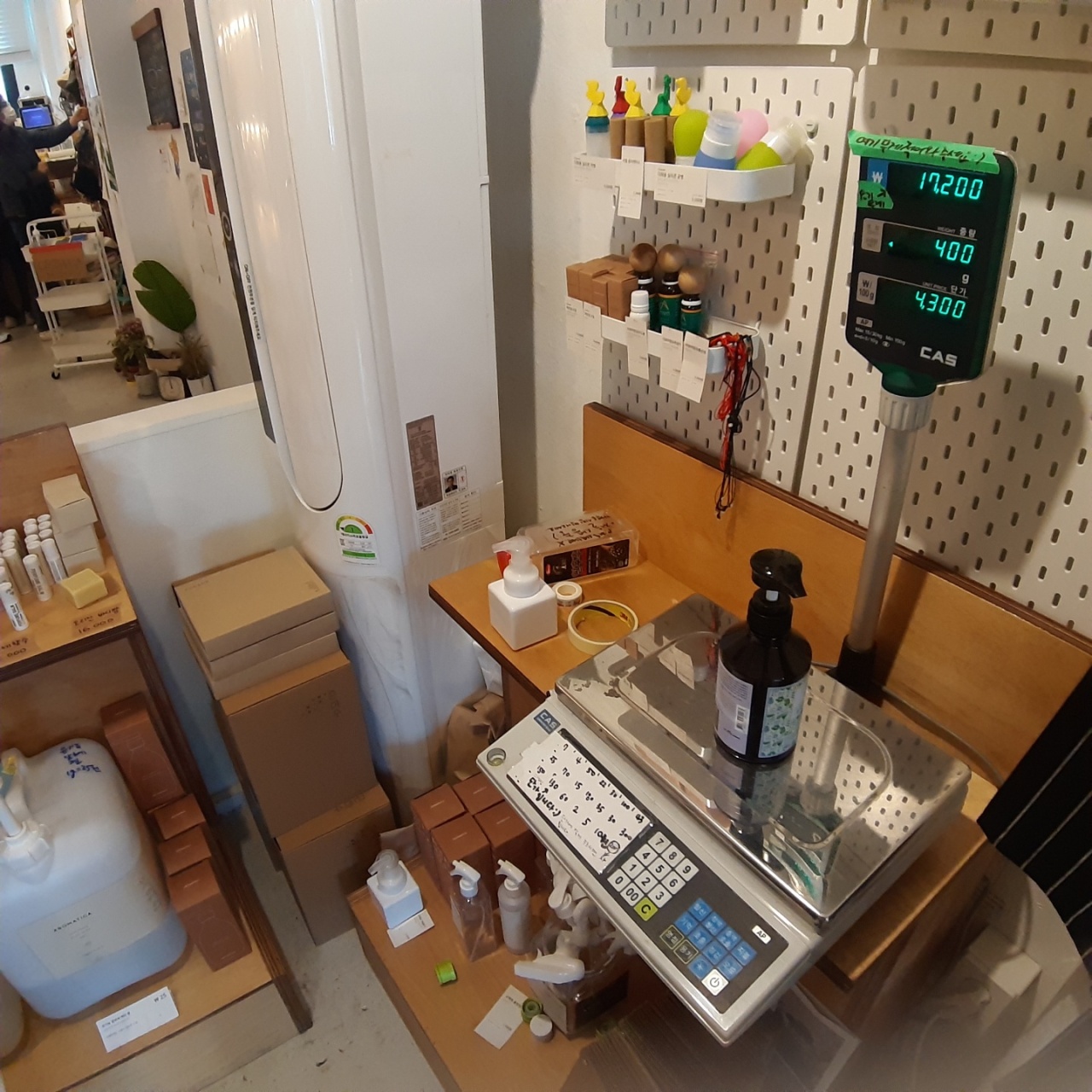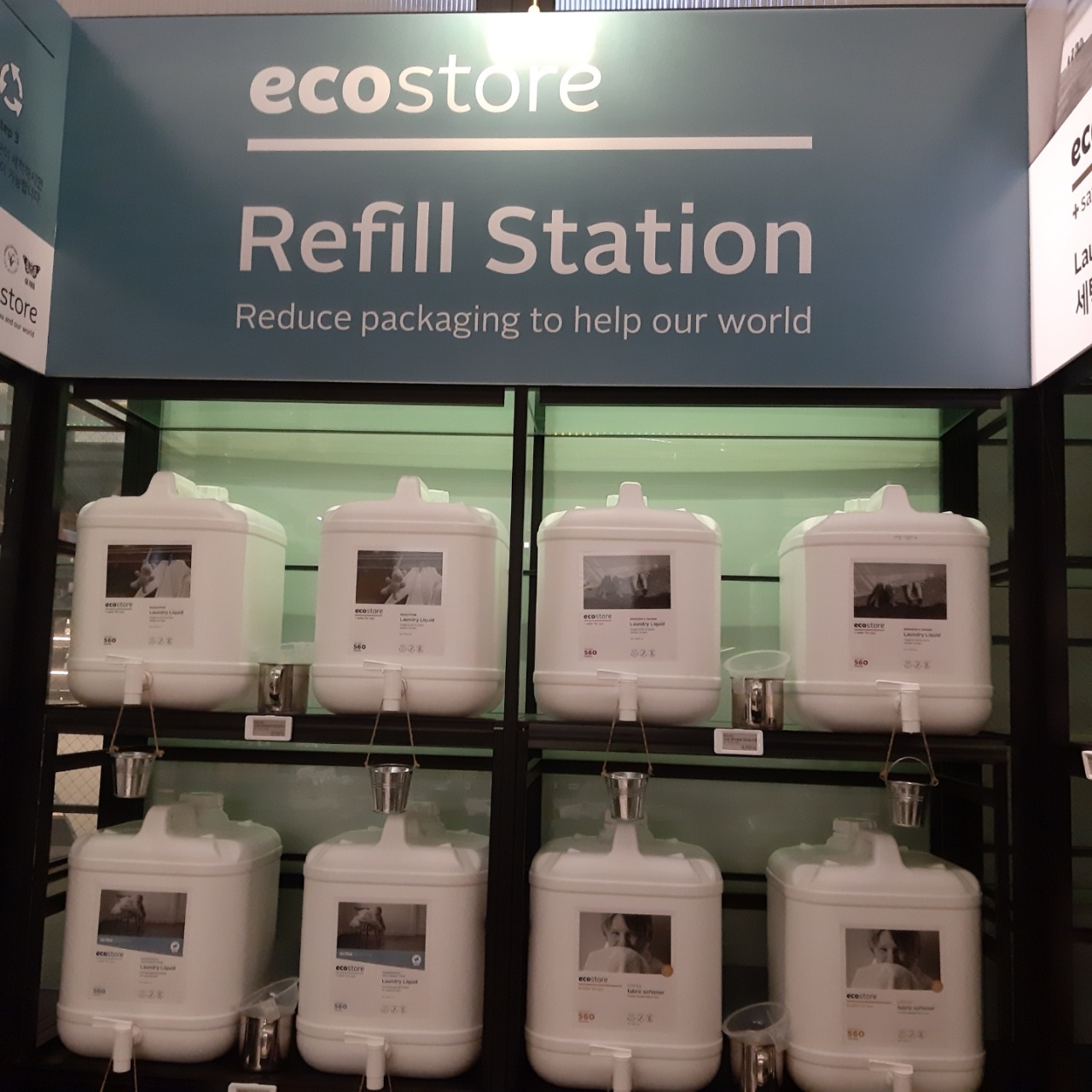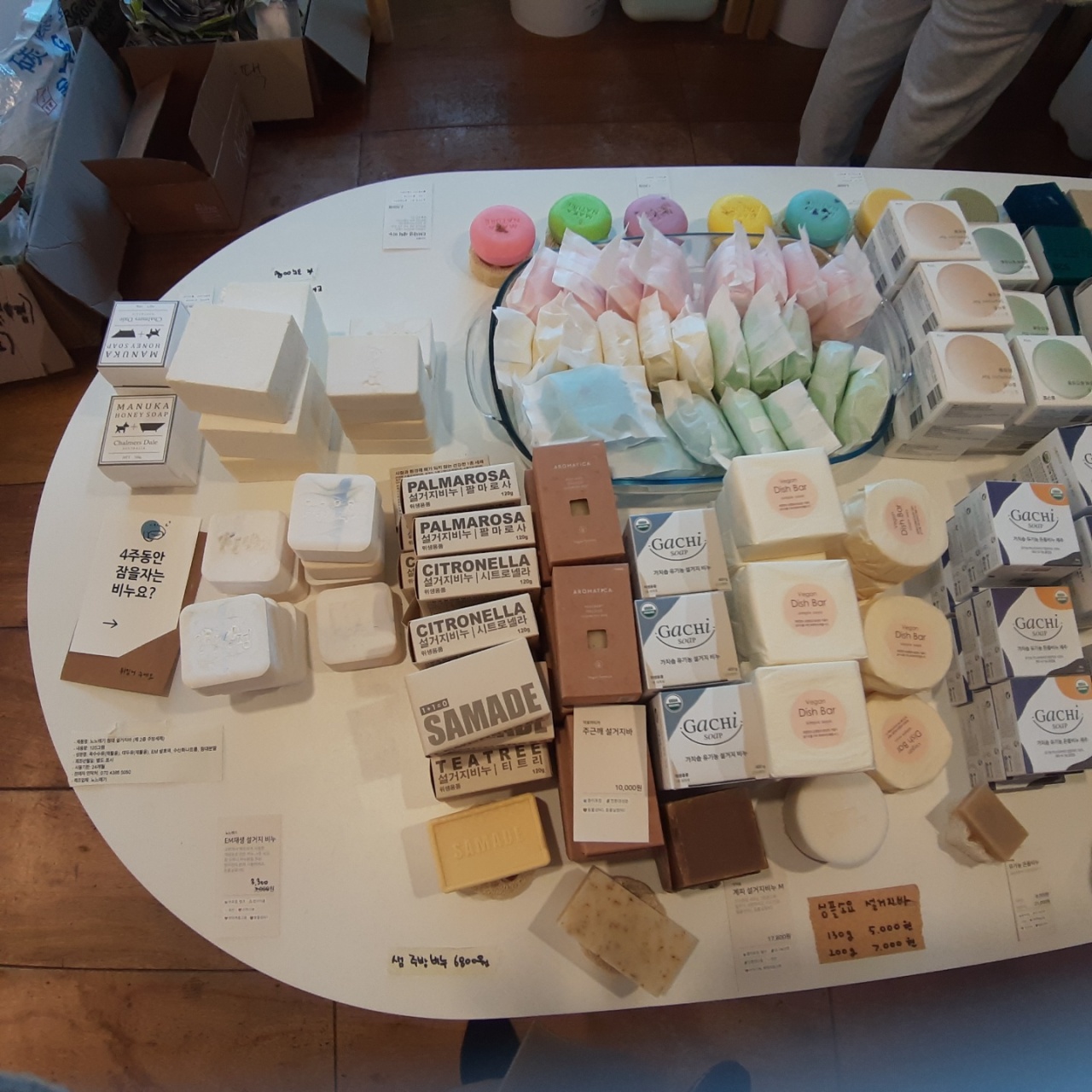 |
Refillable products, such as shampoo, body wash and body lotion, are displayed at Almang Market. (Shin Ji-hye/The Korea Herald) |
On Sunday afternoon, a refill station called Almang Market in Mangwon-dong, Seoul, was busy with consumers seeking plastic-free alternatives.
A refill station is a shop where customers take their own containers to buy goods without packaging.
Almang Market, which opened in June, sells a variety of refillable products, such as shampoo, cosmetics and detergent. Customers purchase them by weight.
As well as refillable liquid products, there are also products like unpacked body and dish soap that do not result in waste packaging, scouring pads made of sponge gourd, bamboo toothbrushes that biodegrade and solid toothpaste that does not lead to microplastics being released into the environment.
 |
The weight of the body wash refilled by the bottle brought by a customer is measured at Almang Market. (Shin Ji-hye/The Korea Herald) |
Lee Seung-yeon, 31, who often comes to the shop, said, “In the past, I used to buy products without much thought about the environment. Now, I know there is an alternative that can less pollute the environment and I feel guilty of throwing away too much plastic.”
She filled a shampoo bottle she brought and bought some dish soap bars.
Yang rae-kyo, chief of Almang Market and environmental campaigner, said this store was not simply aimed at selling recyclable products.
“We are here to raise awareness of the environmental issues among consumers. We are carrying out diverse campaigns that consumers can easily take part in,” she said.
When consumers bring plastic bottle caps or used milk packs after washing and cutting them, they receive one stamp. When collecting 12 stamps, they can receive a tube squeezer made of waste plastic.
The shop is also collecting empty bottles of cosmetics from consumers. Most cosmetic bottles are made of composite materials, so they are not recyclable. “We are planning to launch an environmental campaign with the empty bottles of cosmetics,” Yang said.
She saw an increase of customers recently and there are about 400 to 500 customers during Saturday and Sunday, and normally around 150 every day during weekdays.
As consumers are becoming more alert about growing plastic waste, the number of refill stations that deal with eco-friendly and unpacked products is on the rise in Seoul. There are more than 10 such shops in the city now.
“This trend shows that more conscious customers are looking at how harmful a product can be to the environment instead of how attractive the container looks,” said Yona Kim, project manager of the environmental civic group Korean Federation for Environmental Movement.
 |
Shinsegae Department Store operates a refill station in partnership with New Zealand-based eco-friendly detergent brand Ecostore to sell refillable laundry detergent and fabric softener. (Shin Ji-hye/The Korea Herald) |
Companies, although slowly, are moving to cater to the growing demand from environmentally conscious customers.
Korean beauty and cosmetics conglomerate Amorepacific is the first Korean cosmetics company to operate a refill station in Gwanggyo, Gyeonggi province.
Consumers can refill 15 products, such as shampoo, conditioner and body washer, sold by Amorepacific. Prices vary by product, but they are generally around half of the price of finished goods.
But unlike small shops like Almang Market, consumers should first buy containers which costs 6,000 won (about $5) instead of using their own empty containers. The company explained the containers customers bring are not sterilized, so microorganisms infect the products.
On daily average, less than 20 people visit the store, the company said.
Large retail stores also operate refill stations in partnership with brands that sell refillable products.
Shinsegae Department Store located in Jung-gu, Seoul operates a refill station in partnership with New Zealand-based eco-friendly detergent brand Ecostore. They sell refillable laundry detergent and fabric softener. Consumers should also buy the containers first for 500 won.
It can be sold from one liter, and the price is 6,700 won for laundry detergent and 15,000 won for fabric softener per liter, which is about 40 percent cheaper than the finished product.
The container is made of 100 percent recycled sugar cane plastic, and all laundry detergent and fabric softener sold are certified for animal welfare, the firm explained.
South Korea’s largest retailer E-mart also runs eight refill vending machines in partnership with local brand Sugar Bubble. The machine provides laundry detergent and fabric softener. In order to buy the refillable products, customers should first buy the finished products or the container which costs 500 won. E-mart said there were around 10,000 customers for the refill stations over the last month.
Campaigner Kim said there should be more companies’ efforts to create or expand such refill stations, saying 90 percent of cosmetic containers are made of composite materials so they cannot be recycled.
 |
Soap bars for kitchen detergent, hair and body are displayed at Almang Market. (Shin Ji-hye/The Korea Herald) |
Under the Resource Recycling Act, which took effect in December 2019, product containers are classified into grades of “excellent,” “best,” “normal” and “difficult” depending on the levels of recycling. If the container is classified as “difficult,” the phrase “difficult to recycle” is displayed on the containers.
However, the Ministry of Environment excluded cosmetics containers from the regulations as firms continue to ask for exemptions on the grounds that cosmetics have storage issues and they value aesthetic sense.
In protest, some environmental groups, including Almang Market, carry out a campaign called “Cosmetics Attacks” by gathering thousands of empty cosmetics containers and sending them back to cosmetics companies.
They gathered around 8,000 empty bottles and sent back to cosmetics firms last month and is now collecting more empty bottles from consumers to launch the second one on March 31.
By Shin Ji-hye (
shinjh@heraldcorp.com)











